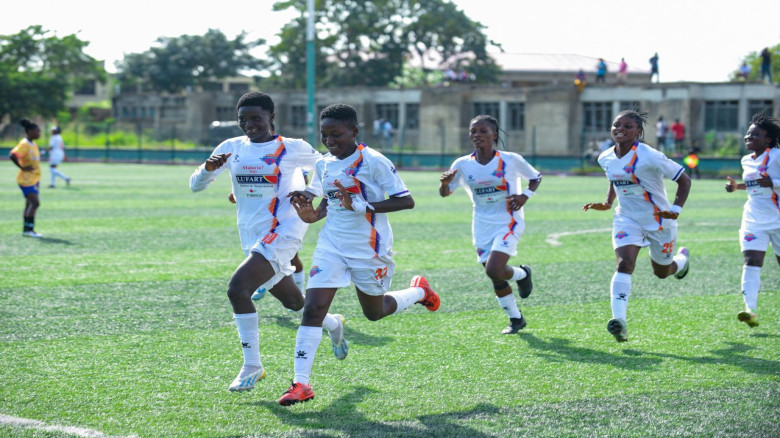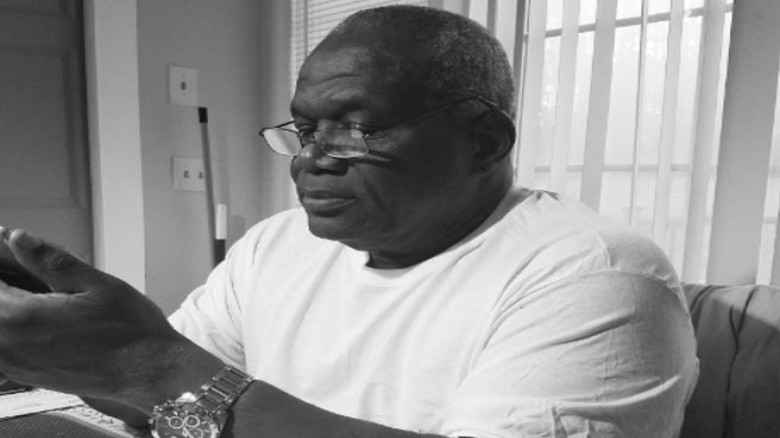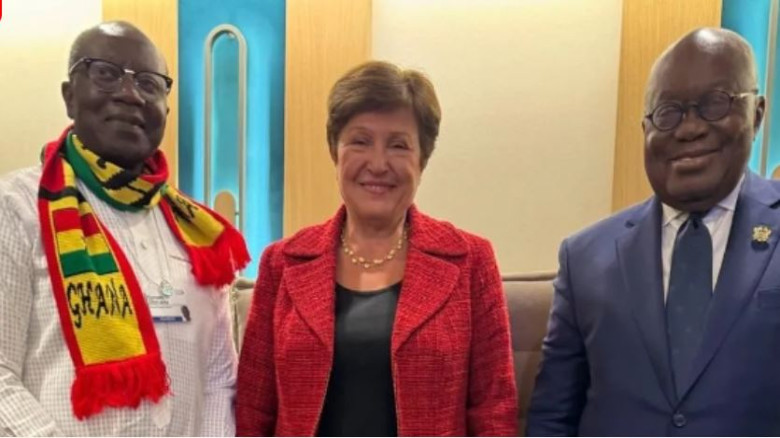‘We'll pass IMF review’ – Ofori-Atta expects second $600m tranche soon
Ghana’s Finance Minister, Mr Ken Ofori-Atta, is optimistic the country will pass the IMF’s first Board review of the gold-, cocoa-, and oil-producing country’s $3-billion three-year extended credit facility programme.
“We are very optimistic that Ghana will pass this review when the Executive Board of the IMF meets on 19 January 2024”, he told Accra-based Joy News.
Mr Ofori-Atta also revealed that the second $600 million tranche would be used for some programmes in the 2024 Budget.
The IMF’s Executive Board is expected to meet on Friday, 19 January 2024, in Washington DC, USA, for the review.
Following the announcement of the agreement reached between Ghana and its official creditors under the Group of 20 Common Framework for Debt Treatment, Ms Kristalina Georgieva, Managing Director of the International Monetary Fund (IMF), welcomed the deal.
In a statement on Friday, 12 January 2024, she said: “I welcome Minister of Finance Ofori-Atta’s announcement that the Ghanaian authorities have reached an agreement in principle with their official creditors on a debt treatment, consistent with the objectives of the IMF-supported programme, which aims to restore macroeconomic stability and debt sustainability, build resilience, and lay the foundations for stronger and more inclusive growth”.
She added: “I want to thank the Official Creditor Committee, especially the co-chairs, China and France, for all their work to reach this agreement. This is another substantial milestone for the G20 Common Framework under which G20 creditors joined forces to agree on debt relief for Ghana”.
“This agreement clears the path for IMF Executive Board consideration of the first review of Ghana’s three-year Extended Credit Facility Arrangement in the next few days. I look forward to continuing our fruitful collaboration with Ghana.”
Ghana started talks with the IMF in 2022 for a $ 3-billion Extended Credit Facility (ECF). The Ghanaian authorities’ economic programme, supported by the ECF arrangement, builds on the government’s post-coronavirus disease 2019 Programme for Economic Growth, which aims to restore macroeconomic stability and debt sustainability and includes wide-ranging reforms to build resilience and lay the foundation for stronger and more inclusive growth.
The IMF noted in the past that “securing timely debt restructuring agreements with external creditors will be essential for the successful implementation of the new ECF arrangement”.
Some key policies under the authorities’ programme include “large and frontloaded fiscal consolidation to bring public finances back on a sustainable path, complemented by efforts to protect the vulnerable”.
The adjustment effort, the IMF noted, “will be supported by ambitious structural reforms in the areas of tax policy, revenue administration, and public financial management, as well as steps to address weaknesses in the energy and cocoa sectors. An ambitious structural reform agenda is being put in place to reinvigorate private sector-led growth by improving the business environment, governance, and productivity.”
In an earlier statement, the government of Ghana said following the successful completion of the Domestic Debt Exchange Programme (DDEP) in 2023, “this development constitutes a significant positive step towards restoring Ghana’s long-term debt sustainability”.
The government commended the support and cooperation of its Official Creditors in reaching this agreement, which, it noted, “demonstrates a mutual commitment to restoring debt sustainability in line with the International Monetary Fund (IMF) programme targets”.
The statement added that the government is “confident that this debt treatment, which entails significant flow relief during the programme period, will allow for the allocation of additional financial resources towards critical public investments, particularly in healthcare, education, and infrastructure development”.
“The terms of the agreed debt treatment are expected to be formalised in a Memorandum of Understanding between Ghana and Official Creditors, which will then be implemented through bilateral agreements with each member of the Official Creditor Committee”, the statement announced.
It noted that the government of Ghana looks forward to further engaging with the Official Creditors “to ensure prompt implementation of the agreed terms”.
“This agreement with the Official Creditors paves the way for IMF Executive Board approval of the first review of the Fund-supported programme, allowing for the next tranche of IMF financing of US$600 million to be disbursed”, the government said, indicating: “The IMF Board Approval should also trigger World Bank Board consideration of US$300 million Development Policy Operation (DPO) financing”.
In addition, the government said “the World Bank is expected to support the Ghana Financial Stability Fund with US$250 million to help address the impact of the Domestic Debt Exchange Programme (DDEP) on the financial sector. These disbursements are key for Ghana’s economic recovery and ambitious reform agenda”.
“Ghana has indeed turned the corner, as evidenced by the:
i. Decline in inflation to 23.2% in December 2023 from 54.2% in December 2022;
ii. Relative strong performance of the Ghana cedi which reported a marginal depreciation of 7.2% between February and December 2023, compared to 28.4% during the same period in 2022;
iii. Overall real GDP growth of 2.8% for the first three quarters of 2023, higher than the 2023 initial GDP growth target of 1.5%”, the statement asserted.
“Today’s agreement with Official Creditors will support ongoing engagements with Ghana’s commercial creditors, including bondholders. The Government of Ghana remains committed to reaching an agreement with its commercial creditors as soon as possible and takes this opportunity to thank all stakeholders. The Ministry of Finance hereby reiterates its commitment to restoring Ghana’s long-term debt sustainability and strengthening macroeconomic stability”.
Source: ClassFMonline.com











Leave A Comment